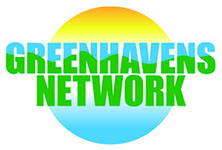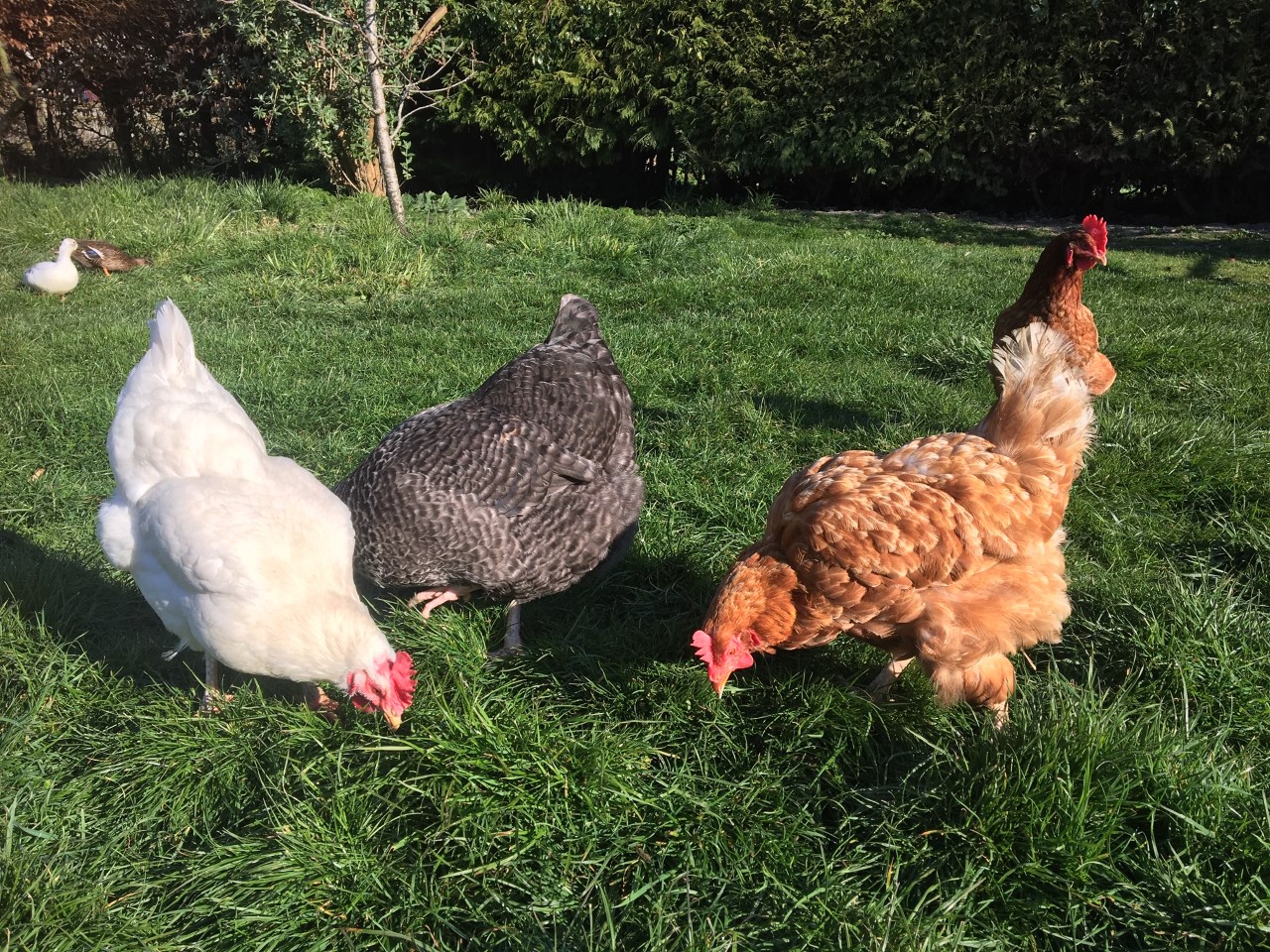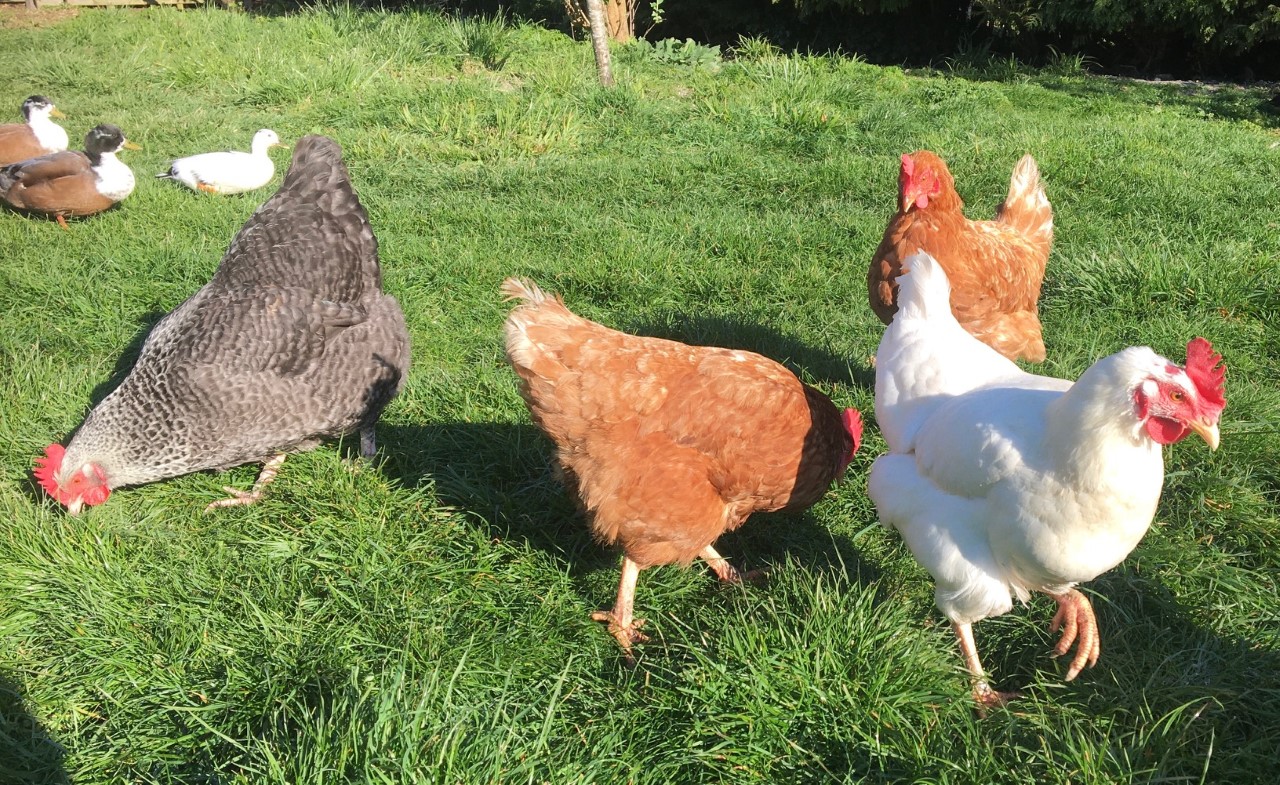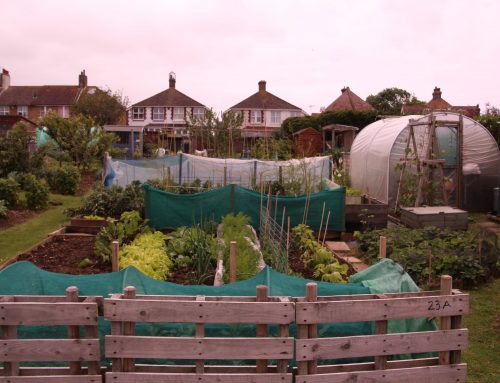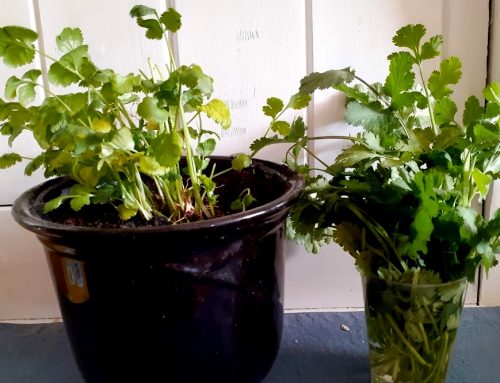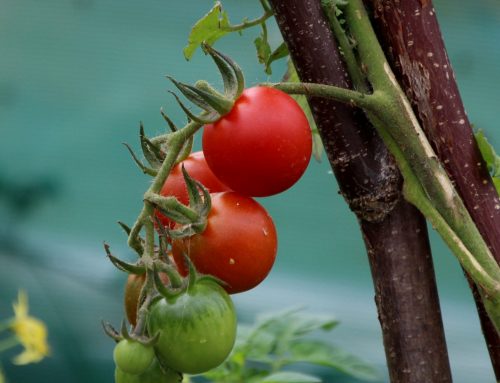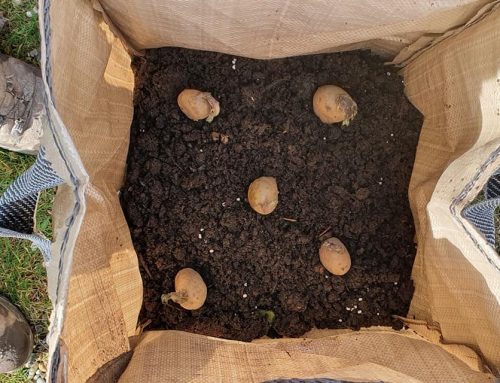Do you know where your food is coming from? The general trend is towards more vegetarian or vegan diets, but for those of us who still eat animal meat and products, how can we shop best for our community, our health and the planet? There was recently a very negative story about the “free range” eggs sold from a local farm in our local supermarkets. When the birds were inspected the suppliers claimed that the chickens met all the relevant standards. Is that good enough though? Why not find out more about where your food is coming from, the quality of the food, and the food miles to get it to you.
In my opinion there really is nothing to beat a proper fresh free range egg. One where you can tell, that the hen has been scrabbling round the garden all day in the sunshine. You really can taste the difference, a golden thick yolk for your morning soldiers! If you have the space, and time to look after them, why not get some rescue hens. They’ll liven up your life, and reward you with amazing fresh eggs. Most rescue hens will keep on laying for years.
As the price of free range and organic eggs has dropped, local farmers can find it harder and harder to make a living, especially if they are keeping their hens in conditions that are better than the minimum standard. The minimum standard for free range chickens is no more than nine hens per square metre.. that still sounds pretty crowded to me!
One such farm is Mac’s farm in Ditchling, which has tried innovative ways to diversify, so that they can keep farming. They have festival/camping weekends and other events. They also sell a large percentage of their eggs directly to the public, or from local outlets (for example there is an egg shack in Seaford). Last year the farm was at crisis point when a wholesaler cancelled a wholesale contract. The farm made an emotional appeal for people to buy local eggs. They started to run “pick your own egg” days, and soon there were queues for miles all round Ditchling so that people could meet the chickens, and go home with a tray of eggs. Kids absolutely loved it. We really need to support farmers that are going the extra mile.
The way they dealt with the crisis contributed to being Susie Macmillan being awarded “poultry farmer of the year” by Farmers Weekly. She has also been on TV encouraging people to use pullet eggs, and all sizes of eggs. The farm also donate eggs to charities and food banks.
We all need to find out where our food comes from, and try and make the right choices. If Trump gets his way and gets his chlorinated chickens into the UK, the US corporations won’t make any money, if nobody buys them.. Ask your supermarket, and your butcher exactly where your food is coming from and to what standards.
The best quality and welfare food may cost more, but even if we all just swapped one or two items a week for the better welfare ones, this would still make a difference. Maybe we could cook with just half the amount of meat and dairy we normally do, or have every other day a “veggie/vegan” day.
There are lots more great tips here from Brighton food partnership about buying your food.
If you are a local farmer, or keep your own chickens, or have a passion for growing your own food, we would love to hear more from you.
Editor note – this blog was written before the current Coronavirus crisis. During this difficult time when the supermarkets have often let us down, it has been the local producers that have stepped up to the mark (risking their own health in the process). I’ve found a wonderful local vegetable box scheme that delivers, lots of local shops are delivering everything from meat, bread, beer and chocolates, and my local shop kept back some eggs for her regulars! Thank you all!
Do support your local businesses now, and going forward. If you can give some hens a new start contact https://www.facebook.com/freshstartforhens/
Many thanks to Alex for the photos of her beautiful happy hens (photobombed by the ducks)
